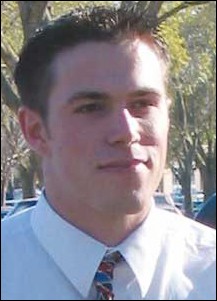KSSU radio looks to expand its boundaries

Image: KSSU radio looks to expand its boundaries:ASI VP of Finance, Peter Ucovich:
February 12, 2003
KSSU radio is seeking to boost its bandwidth to accommodate more listeners.
“We’re always looking into possibilities to increase our bandwidth,” said David Wilbur, Program Director of KSSU. “There’s nothing on the table, but we’re keeping our eyes open for opportunities.”
KSSU is Sacramento State’s student run radio station. Created in 1991, the station has survived despite serious wattage problems.A recent survey by the State Hornet revealed that KSSU, which operates at 1580 AM, is only audible in a few places on and around the campus. Nearly all parking lots, except overflow, get decent reception. The residence halls also get clear reception.
The same survey also revealed that only static can be heard in the University Union, where the radio station broadcasts from.
“We need to expand KSSU so we can use it as a resource for the campus,” said Associated Students, Inc. Vice President of Finance Peter Ucovich.
Ucovich supports a partnership between KSSU and Capitol Public Radio. CPR was the original Sac State radio station, but has since moved off campus. CSUS still holds CPR’s broadcasting license.
“Capitol Public Radio has not been receptive to our ideas about a partnership,” Ucovich said.
Students could learn a great deal by having a partnership with CPR, Wilber said.
KSSU has 45 disc jockeys on staff for the semester, with the possibility to add up to 10 more in the coming weeks. Most DJs broadcast a free-format one to two hour show weekly. There is no faculty advisor for the program, which functions as a program of ASI.
KSSU’s average annual budget is about $15,000, and the station generates no significant revenue, Ucovich said.
Some possibilities for expansion in the past included Internet access to the station, but industry disputes over royalty payments for Internet broadcasting have dampened aspirations, Wilber said.











































































































































